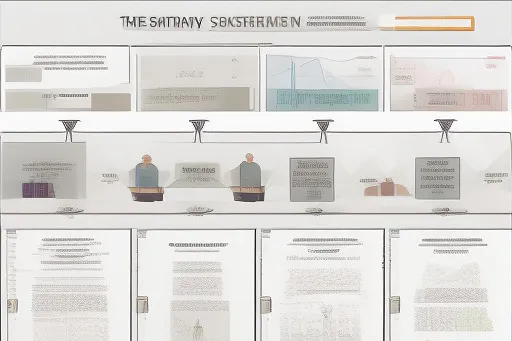Best Social Work Theories Chart


In the field of social work, having a clear understanding of various theories, models, and perspectives is essential for practitioners. These theories provide a framework for understanding human behavior, social systems, and the impact of interventions.
In this article, we will delve into the major theories used in social work practice, providing a cheat sheet for field instructors and social workers alike.
Check out this Youtube video: “Social Work Theories and Approaches – YouTube” that provides an in-depth analysis of social work theories through an informative and engaging chart.
Introduction to Social Work Theories Chart
The social work theories chart is a valuable tool for social workers as it provides a visual representation of the different theories and their applications. It acts as a quick reference guide, allowing practitioners to select the most appropriate theory for a particular situation or client interaction.
Systems Theory
One of the major theories utilized in social work practice is systems theory. This theory views individuals as part of larger systems, such as families or communities.
It emphasizes the interconnectedness of these systems and how changes in one system can impact the others. Social workers who apply systems theory take into account the various components of a person’s environment and work to address issues at multiple levels.
Psychodynamic Theory
Another significant theory employed by social workers is psychodynamic theory. This theory explores the influence of unconscious processes and childhood experiences on an individual’s behavior and emotions.
Social workers utilizing psychodynamic theory focus on understanding the client’s past experiences and how they may be influencing their current challenges. They may use techniques such as psychodynamic therapy to facilitate insight and promote personal growth.
Cognitive-Behavioral Theory
Cognitive-behavioral theory is widely used in social work practice as it examines the relationship between thoughts, feelings, and behaviors. This theory recognizes that individuals’ thoughts and beliefs can greatly impact their emotions and actions.
Social workers applying cognitive-behavioral theory work with clients to identify and change negative thought patterns and develop healthier coping strategies.
Strengths-Based Perspective
The strengths-based perspective is a valuable approach utilized by social workers to focus on clients’ existing strengths and resources, rather than solely on their problems and deficits. This perspective recognizes that individuals have internal and external strengths that can be harnessed to promote positive change.
Social workers using a strengths-based approach collaborate with clients to identify and capitalize on their strengths, empowering them to overcome challenges.
Ecological Perspective
The ecological perspective is another important theory used in social work practice. It examines the reciprocal relationship between individuals and their environment, recognizing that individuals are shaped by the social, cultural, and physical contexts in which they live.
Social workers employing the ecological perspective assess not only the individual but also the various systems that influence their well-being. They strive to create interventions that address both individual and environmental factors.
Conclusion
In conclusion, the social work theories chart serves as a valuable tool for social workers to navigate the complex landscape of theory and practice. By understanding the major theories, practitioners can tailor their interventions and support to meet the unique needs of their clients.
After careful consideration, the best recommended product related to the topic of social work theories chart is the “Social Work Theories and Perspectives” by Karen Healy. This comprehensive book provides an in-depth exploration of various social work theories and their applications. It offers practical examples and case studies to enhance understanding and application. For more information and to purchase the book, you can find it on Amazon here.


Remember, as a social worker, your knowledge and understanding of theories and models are essential to providing high-quality services to your clients. Stay informed, continue to learn, and utilize the social work theories chart as a helpful resource in your practice.







